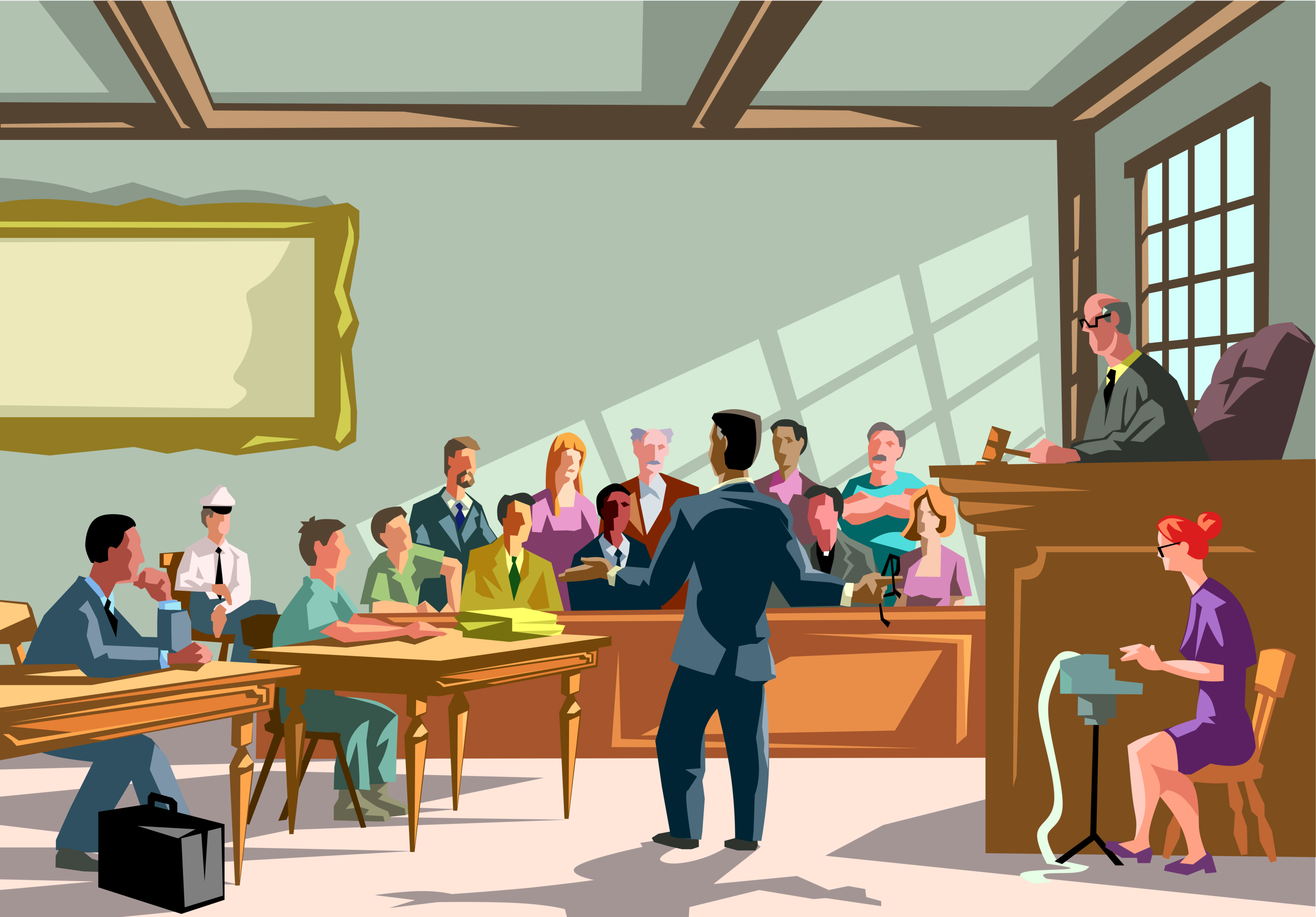Civil and criminal cases move similarly through the court system, albeit with their small differences. Regardless of the circumstances, it is recommended that the defendant hires a lawyer.
Generally speaking, each case will have to go through several stages of the court system. In most situations, these cases will be represented by an attorney – but even if people choose to represent themselves, those court cases would still follow the same stages.
With that in mind, the stages may differ depending on the type of case. A civil case, for example, may move differently through the court system – even though ever-so-slightly. Read on to find out how your case is moved through the system:
The Case Movement in Civil Cases
A civil case is very often a legal disagreement between two entities. These entities can be people found in a dispute, or the case may involve a business. People may also find themselves in civil lawsuits with entities such as their government, county authorities, and so on.
In many situations, civil dispute cases deal with issues such as debt collection, contract breaches, property damage, monetary compensation, or family issues after a divorce. Within the court system, the party filing the lawsuit is called “plaintiff,” whereas the ones getting sued are referred to as “defendants.”
Here is how the case moves when a civil lawsuit is involved:
- During the first stage of a lawsuit, the plaintiff will file a document with the court, such as a petition or a complaint. There, they will also file the reason why they are suing the defendant in the first place. They will talk about the actions that they want to be taken against the defendant – the measures that the court should take.
- The plaintiff needs to state if the case should go into arbitration. This should be done in accordance with the court rule.
- As the files move, a copy of the filed complaint will also be delivered to the defendant. This will also act as their summons to court.
- The defendant receives limited time to offer a written answer in response to the claims. They have an average of 20 days to either deny or admit to the complaints.
- Both defendant and plaintiff exchange information in regard to the case. This case is referred to as “discovery.”
- The case reaches and is tried before a judge or a jury. Here, each party will have the opportunity to open and close their statements, present the evidence or examine the witnesses. Trial attorneys will be present to represent each party.
- Judges will look at the evidence and testimonies presented in the trial, analyzing the issues of both parties. Based on what they gather, the judge or the jury will offer their verdict.
- The losing party has the right to make an appeal to the decision, which may take the case to a higher court level.
In the event that the losing party files for an appeal, the court will further send the case to the Court of Appeals. At that point, it will be reviewed once more. This stage does usually not require another trial, as the only actions taken will be to review the documents once more. Depending on the findings, the judges from the court of appeal can affirm the initial decision, reverse it, or remand it.
The Case Movement in Criminal Cases
A criminal case involves act commissions that are prohibited by the law. These acts are generally punished through fines, probation, imprisonment – and sometimes, even death unless it was ruled out in the state. This is how a criminal case usually unfolds:
The first stage of the criminal case involves the arrest of the person. This is done either through a warrant for arrest or if the action was seen by someone from law enforcement. The person may be detained for 24 hours before they are either released or arrested.
- Initial Appearance
As the case moves in court, the judge will determine the name and address of the defendant. The defendant will be informed of the charges placed upon them, and they will be given the right to remain silent. The defendant can hire a criminal defense lawyer, or will be given one by the state in case they cannot afford an attorney.
- Preliminary Hearing
The case moves into the preliminary hearing. Here, the judge will receive the evidence and hear the testimonials from potential witnesses. Data from the defendant’s attorney and the prosecuting attorney will also be determined. If enough evidence is found to suggest the defendant indeed committed the crime, the case will move into trial at the Superior Court, setting a date for an arraignment.
- Arraignment
During the arraignment, the defendant may plead their guilt: guilty or not guilty. They may also go for no contest. If the defendant pleads guilty, the judge will deliver their sentence for the crime. If they plead not guilty, then the case will be sent to trial.
- Trial
During the trial, involved parties may open and close their statements. Evidence will be introduced, and the witnesses will be cross-examined. If potential evidence appeared that was not presented during the preliminary hearing, it will be shown during the trial.
- Verdict
After going through the evidence, the guilt of the defendant will be decided. If they are not found guilty, they will be immediately released. If they are found guilty, they will be given their sentence. The defendant can be given released status until their sentence, or they may be kept into custody, depending on their crime.
- Appeal
If the defendant is convicted, they may file for an appeal. In case the convicted person is given the death sentence, the case will go into appeal with the Supreme Court. The Court of Appeals will process the evidence once more and make a decision. Similar to civil cases, they can affirm a decision, reverse it, or remand the case.
Final Thoughts
Civil and criminal cases move similarly through the court system, albeit with their small differences. Regardless of the circumstances, it is recommended that the defendant hires a lawyer. This will give them the best chances to win their case if they are in the right.



Join the conversation!